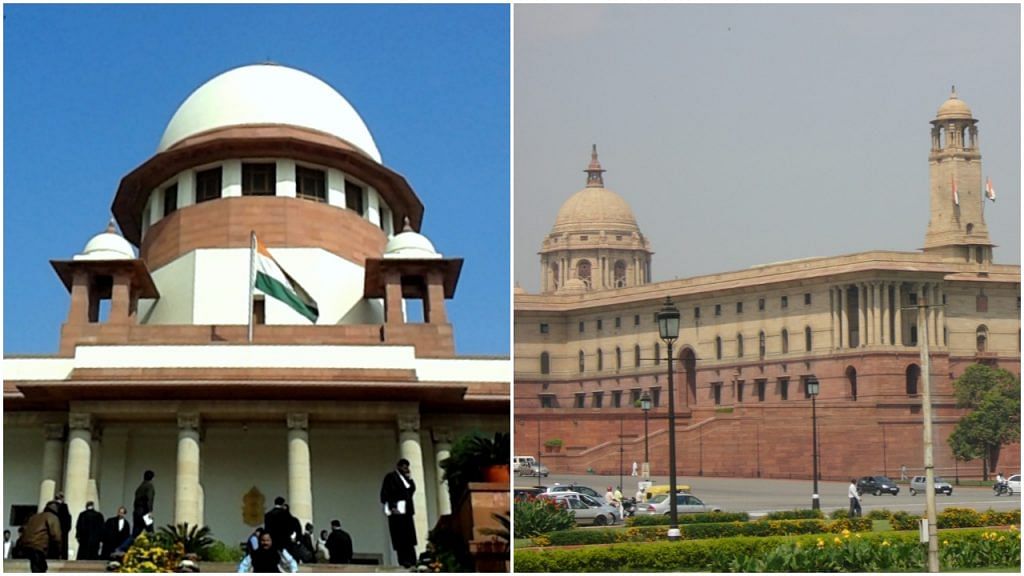Ordinarily, the onus of proving an accused person’s guilt beyond doubt rests solely on the prosecution. Unless backed by solid, incontrovertible proof, the prosecution’s submissions before the court are looked at with scepticism, never to be accepted as presented. All that the accused has to do is successfully rebut the charges levelled by the prosecution, which is usually the government. This is what the principle of natural justice really translates into. But in India these days, things are different.
Citizens are getting lynched by mobs over fake WhatsApp or Facebook forwards, truncated videos of speeches are being used to discredit a section of society, attempts are being made to browbeat the judiciary into toeing the government’s line. These are times when a routine transfer of a judge – former Delhi High Court Judge S. Muralidhar’s shift to the Punjab and Haryana High Court – turns into a hurried late-night exercise, hours after the judge had come down heavily on the agencies of the Narendra Modi government and a police force under its command for their inept and clearly partisan handling of hate speeches. All of this was at play during and in the aftermath of the Delhi riots.
But nothing illustrates this better than the curious case of activist Harsh Mander. Last week, the Supreme Court was hearing a plea filed by Mander on the alleged hate speeches by BJP leaders and others and the subsequent inaction of the Delhi Police in registering FIRs against them.
Suddenly, the Delhi Police counsel made a clever play and turned the issue on its head by directing the court towards an earlier speech given by Mander, projecting it as anti-court. And, the bench headed by Chief Justice of India S.A. Bobde seemed somewhat convinced by the arguments of the counsel.
As the focus shifted to the allegations against Mander, which were made on the basis of a truncated clip of his speech video, the issue of hate speech was pushed to the backburner.
Courts cannot and should not always accept the police or the government’s version at face value. The government should not be granted an easy pass. In fact, the bar must be raised higher for a government making counter-claims against a citizen as compared to a citizen building a case against the government.
Also read: Supreme Court can’t show weakness when people’s lives lie in the hands of murderous mobs
Courts for the government
All this and much more explains why there has been a surfeit of instances of Indian courts showing a greater tendency to stand with the Modi government and its agencies, often to the detriment of the rule of law.
On rare instances when the courts seemingly don’t, it becomes a matter of surprise for the people who start praising the judiciary and renewing their hopes.
On Sunday, when the Allahabad High Court decided to take suo motu note of the brazenly arbitrary and unconstitutional action of the Yogi Adityanath government in Uttar Pradesh to put up banners with names, addresses and photographs of anti-CAA protesters, many on social media hailed the “bold” move by the high court. Not surprisingly, some questioned the high court for making strong observations in the matter.
The hearing and the deeply divided debate it sparked only underlines the fault lines that the judiciary has to tread in these politically charged times. But the fault lies as much with those running the higher judiciary than with those (read Modi government) trying to control it. As has been the case in the last few years, whenever the Modi government has tried to corner the judiciary, there has been little or no push-back.
Instead, what we have seen is a growing tendency of Indian courts to take a nationalistic view on matters legal, ignoring that a political party’s definition of who a patriot is or what constitutes as love for the nation may be entirely different and not in sync with the larger worldview. These differing worldviews must at all times be allowed to exist, least of all by the judiciary. This is what the holy grail – the Constitution of India, which should guide the judiciary’s actions – says.
Also read: Supreme Court judges gushing over Modi is a problem for judiciary and democracy
A less-talked-about culprit
Another important factor that may be the cause of Indian courts going wrong on the issue of protecting citizens’ rights that the Modi government’s unlawful actions are bent on curbing is the newly-evolved system of jurisprudence through sealed envelopes.
In several cases, the Modi government has shared material or purported evidence against the accused in sealed envelopes.
No one knows what is in those envelopes. More often than not, the courts ignore the importance of placing the purported evidence under the lens so that its veracity can be checked and it can be ascertained that this ‘evidence’ will stand the test when put on trial.
But it’s worrisome that the accused or their counsels face difficultly in challenging the ‘evidence’ when they have no idea of what’s inside those sealed covers.
It is high time the courts became more aggressive in questioning the BJP government, especially on actions that breach the citizens’ rights.
The author is a senior journalist. Views are personal.
